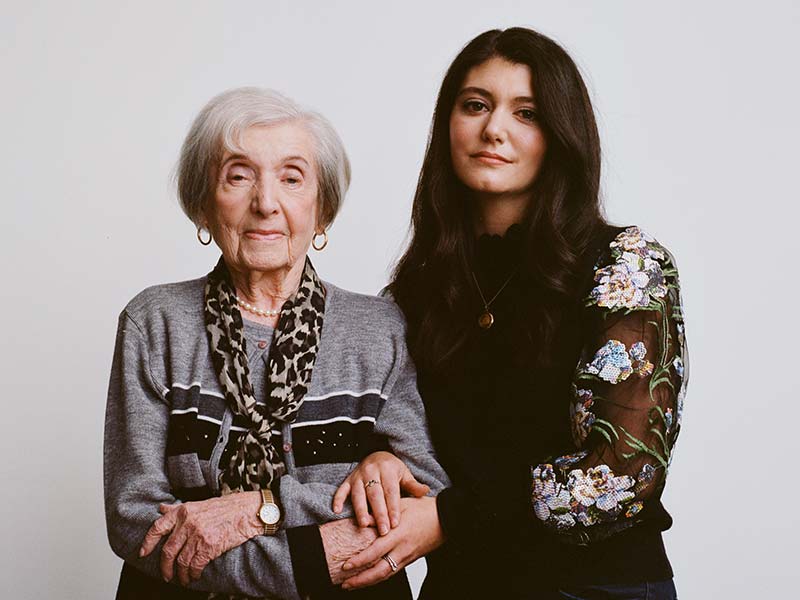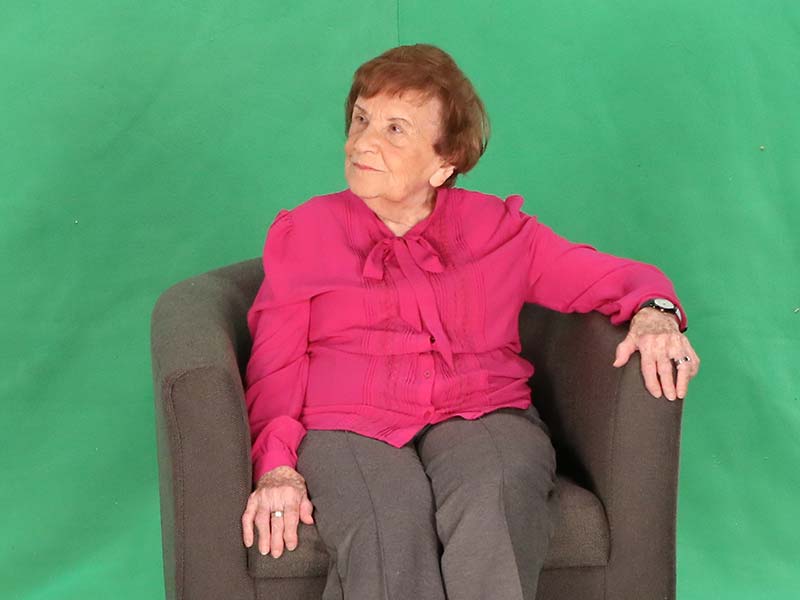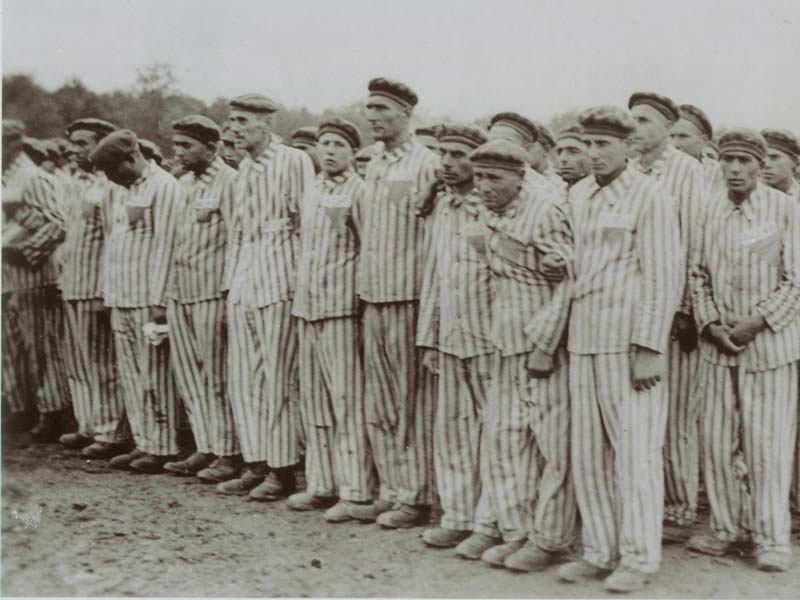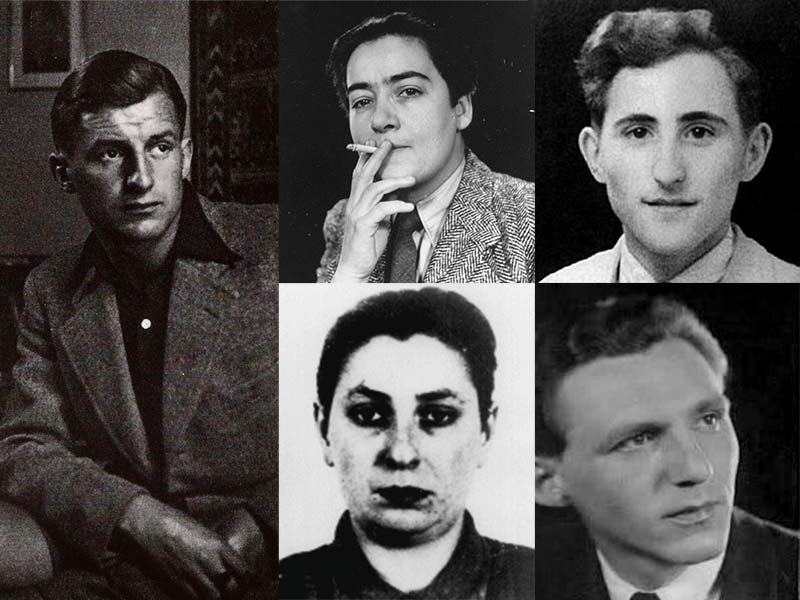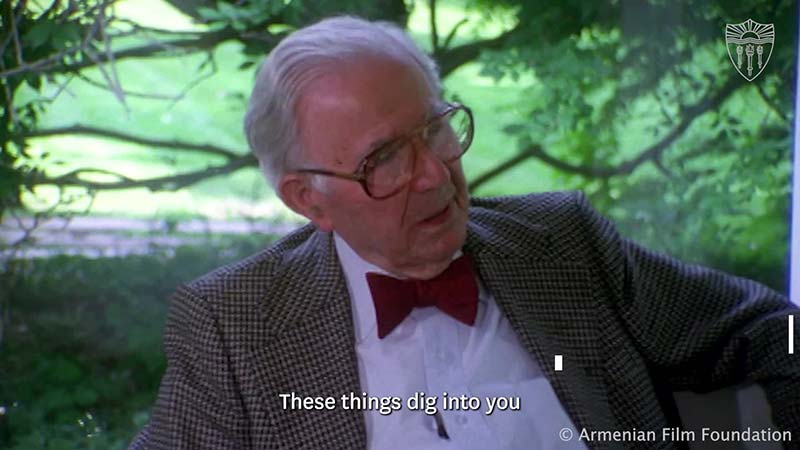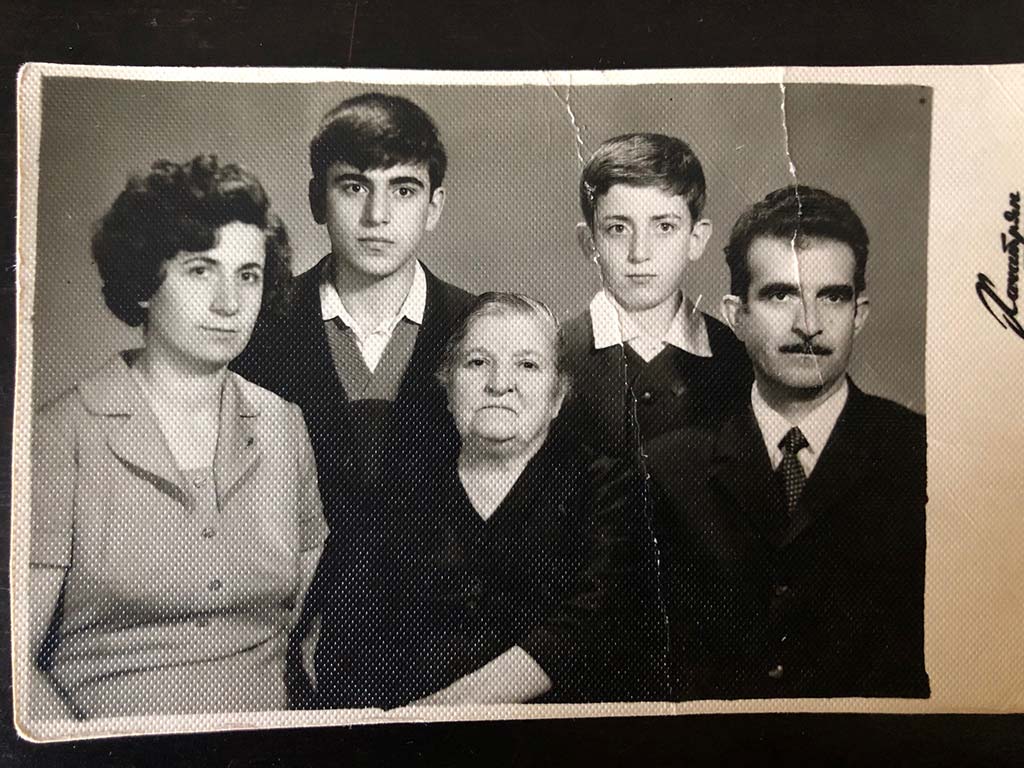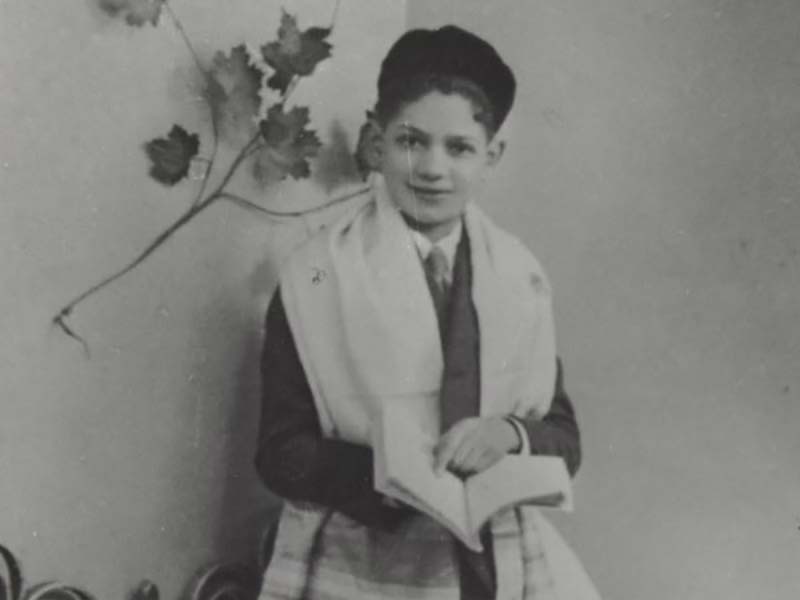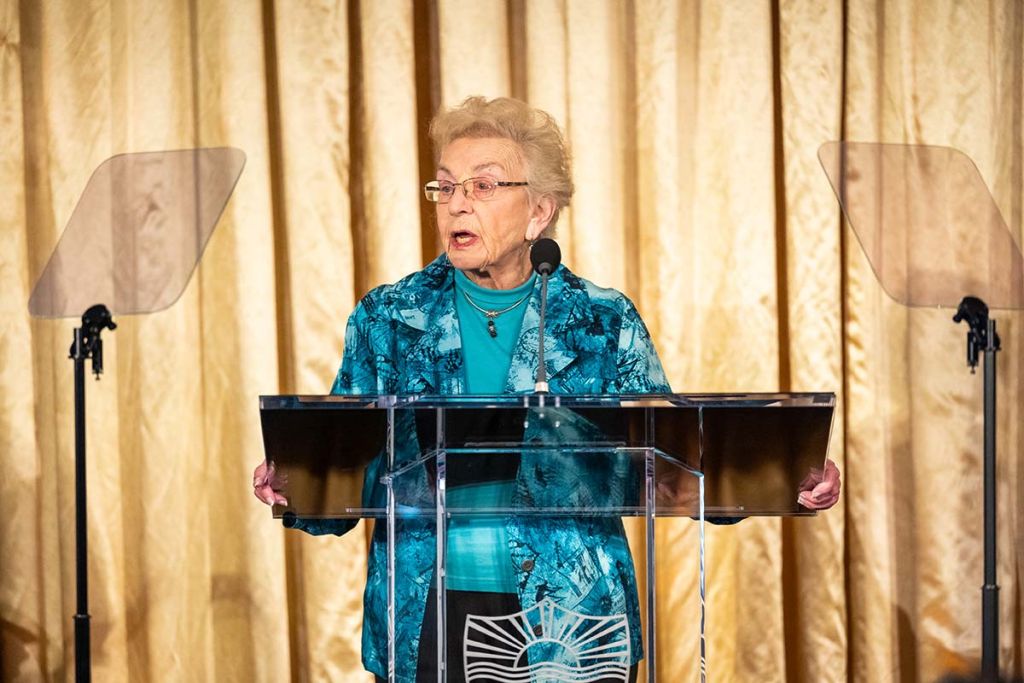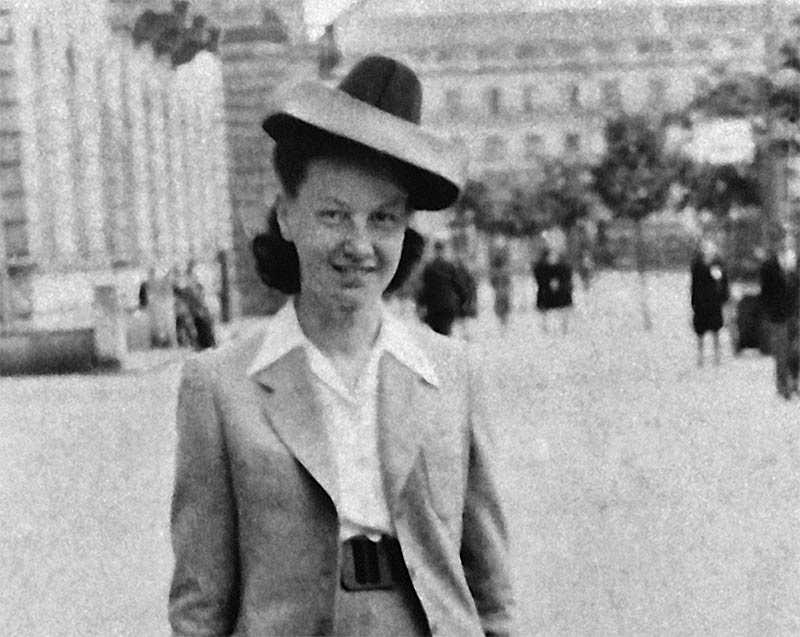Living Links, the first national organization created to engage and empower third-generation (3G) descendants of Holocaust survivors, has joined forces with the USC Shoah Foundation. The new partnership will expand a Living Links program that teaches 3Gs to share their family stories in classrooms and with community groups to counter antisemitism, bigotry and hate.
At a time when the number of Holocaust survivors is dwindling and antisemitism is on the rise, 3Gs are uniquely positioned to offer personal accounts about how unchecked intolerance and hate led to the Holocaust.
The USC Shoah Foundation and The Latin American Network for Education on the Shoah (Red LAES) have launched a new educational web page featuring the first Spanish-language Dimensions in Testimony (DiT), an interactive biography that invites students to engage in conversation with the recorded testimony of a Holocaust survivor.
The Division of Academic Programs at the USC Shoah Foundation invites applications from PhD candidates and early-career scholars for the inaugural cohort of fellows in its non-residential colloquium “Gender and Sexual Violence in the Holocaust.” We understand this topic broadly and are seeking applicants whose work touches on the members of any nation or population affected by these issues, as well as the long-term impact and legacies of these histories. from the between 1933 and 1955, though we will also consider projects whose scope may examine the legacies of this violence.
The Division of Academic Programs at the USC Shoah Foundation invites applications from PhD candidates and early-career scholars for the inaugural cohort of fellows in its non-residential colloquium “The LGBTQIA+ Community in the Holocaust.” We understand this topic broadly and are seeking applicants whose work touches on the members of any nation persecuted by the Nazis or their allies for their sexual identity, along with the long-term impact and legacies of this history.
On April 24, we call on the world to remember the genocide of the Armenian people.
109 years ago, during the First World War, Ottoman authorities arrested hundreds of Armenian intellectuals and community leaders in Constantinople (present-day Istanbul). At the time, the Ottoman Empire was under the control of the relatively new leadership of the Young Turks; a party that had sought to create an ethnically homogenous Turkish state – a state that would have little space for the millions of Armenians then living in that empire.
Shaul Ladany, an 88-year-old world-record holding speed-walker, has defied death multiple times. As a small child, he survived the German occupation of Budapest and Bergen-Belsen concentration camp. Then, representing Israel in the 1972 Munich Olympics, he narrowly escaped the massacre that took the lives of 11 Israeli athletes.
For years, Celina Biniaz, one of the youngest people saved by Oskar Schindler, did not tell anyone – not even her children – that she was a Holocaust survivor. She feared no one could comprehend what she had been through, and she didn’t want to impose the trauma of her childhood upon her son and daughter.
Celina’s reluctance to speak ended in 1994. That year, director Steven Spielberg brought Oskar Schindler’s story to the screen with Schindler’s List. He established Survivors of the Shoah Visual History Foundation, which later became the USC Shoah Foundation.
